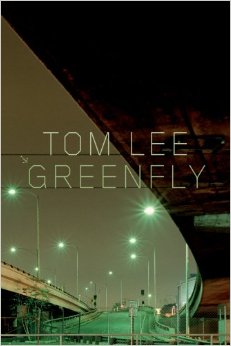(Published in The London Magazine, October/November 2008)
An Unsettled Calm
There is an effectively cold and unnerving tone to the author’s first published work. Most of the short stories focus on people who are living at the edge of a crisis: a couple waiting for a drug deal to be concluded; relationships that are almost over; and a woman who is secretly planning to cross a border into another country. These common themes are developed into well-structured and usually satisfying narratives by the verve and originality of their plots. We are rarely given a sense of the natural world, which increases a feeling of claustrophobia. Locations in Germany, America and South America broaden the range of interest.
The stories are sometimes bleakly humorous. Many are set in a contemporary world whose values are nihilistic. Even if characters have a conventional surface life, the weirdness of their thoughts or actions puts most of them in the oddball category. Cocaine, affairs, obsessions, and psychological collapse, break through the mask of the self.
The worlds of GreenfIy are eerily insubstantial because they feel so temporary, merely part of the storytelling devices of the author, without a sense of their own permanence. Descriptions of characters too are kept to a minimum and there is, deliberately, little exploration of the inner self. As Henry James might have said, nothing is solidly specified. The writer’s lightly-worn postmodernist awareness of the fictiveness of fiction usually works well. In ‘Mrs Echegary’, for example, the title seems to be a playful nod to William Trevor’s novel Mrs Eckdorf in 0’Neill’s Hotel. Mrs Echegary is waiting in her hotel room for her lover. Eventually she leaves, dissatisfied. Numerous vignettes are linked to the main narrative. The reader can never settle in one place, just as the characters never seem at peace in a stable world. These extra stories run the risk that the reader could lose emotional connection to Mrs Echegary. But we don’t. We care about her plight. The writer has pulled off a clever trick of drawing together the disjunctive nature of the text into a satisfying conclusion – a trademark of his style.
‘Cerology’ is brilliantly ambitious. The title itself is full of hints and clues, both medical and mythical. I suggest that the reader researches the word. A professor in the 1890s develops a frightening new field of science. The story is told through the diaries of his wife, which are given to his granddaughter, who is currently writing an article, ‘The Fantastic Vagina: Sigmund Freud and the Narratives of Edgar Allan Poe.’ The sub plot, about sexual positions, is a minor tour de force. The main plot depends upon the relationship between the professor and his daughter, but we have not gained enough insight into their emotional bond, and therefore the climax is not convincing.
Perhaps there is a warning here for the author: he should not become too absorbed in over elaborate textual games. A few of these narratives distance the reader by not developing a deeper sense of the characters, though most of the stories are fresh, strange and compelling. ‘Berlin’ shows the author at his best. GreenfIy is an accomplished debut.

